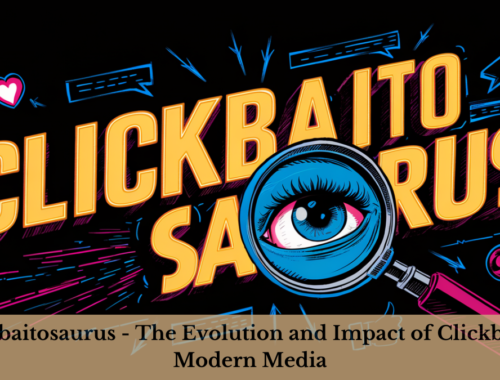
The World of Преводcч – Bridging Language Barriers
Language has the power to unite people, but what happens when communication barriers arise? Step into the world of Преводcч – the skilled individuals who bridge these gaps by connecting different languages and creating new avenues of understanding. In this extensive article, we’ll delve into the diverse roles of translators, the skills they possess, the challenges they face, and the future of this indispensable profession.
Introduction to Преводcч
What is a Преводcч?
Преводcч, a term that stands for ‘translator’ in many Slavic languages, refers to individuals who convert written text from one language into another. They play a critical role in cross-cultural communication, ensuring that language barriers do not impede understanding.
The Role of a Translator
Translators are more than just language experts. They are bridges between cultures, conveying not only words but also the nuances and contexts that come with them. A good translator must understand the source material deeply and reproduce its meaning accurately in the target language.
The Importance of Translation
Bridging Cultures and Communities
Translation is essential for global communication. It allows different cultures to share knowledge, literature, technology, and business practices. Without translation, the global exchange of ideas would be significantly hindered.
Facilitating International Relations
In diplomacy, accurate translation is crucial. Misinterpretations can lead to misunderstandings and conflicts. Translators ensure that international agreements and negotiations proceed smoothly.
Enhancing Education and Research
Translation makes educational materials accessible to students worldwide, regardless of their native language. It also enables researchers to share their findings with a global audience, fostering innovation and collaboration.
Skills and Qualifications
Language Proficiency
A translator must be fluent in at least two languages. They should understand not only the vocabulary but also the grammar, idioms, and cultural references of both languages.
Cultural Competence
Understanding the cultural context is crucial for accurate translation. Translators must be aware of cultural differences and how they can affect meaning.
Research Skills
Translators often need to research terminology and concepts to ensure their translations are accurate. This is especially true for technical and legal translators.
Writing Skills
A translator must be a good writer in their target language. They should be able to convey ideas clearly and effectively.
Attention to Detail
Translators need to be meticulous. Small errors can change the meaning of a text, so attention to detail is crucial.
Education and Training
Many translators have a degree in translation studies or a related field. Professional certifications, such as those offered by the American Translators Association (ATA), can also enhance a translator’s credentials.
Tools of the Trade
Computer-Assisted Translation (CAT) Tools
CAT tools help translators work more efficiently by organizing their work and providing suggestions for terminology and phrasing. Popular CAT tools include SDL Trados, MemoQ, and Wordfast.
Translation Memory
A translation memory is a database that stores previously translated segments. It helps maintain consistency and can speed up the translation process.
Terminology Management
Terminology management tools help translators keep track of specialized terms. This is particularly important in technical and legal translation.
Machine Translation
While not a replacement for human translators, machine translation tools like Google Translate can assist with initial drafts and provide quick translations for simple texts.
Dictionaries and Reference Materials
Access to comprehensive dictionaries and reference materials is essential for accurate translation. These resources help translators understand the nuances of different words and phrases.
Challenges Faced by Translators
Ambiguity in Language
Languages often contain ambiguous phrases that can be difficult to translate. Translators must use their judgment to determine the best way to convey the intended meaning.
Cultural Differences
Cultural differences can affect how a message is received. Translators need to be aware of these differences and adapt their translations accordingly.
Keeping Up with Language Changes
Languages are constantly evolving. Translators must stay updated with new terminology and usage trends in both their source and target languages.
Meeting Deadlines
Translators often work under tight deadlines. Balancing speed and accuracy can be challenging, especially for complex texts.
Maintaining Consistency
Ensuring consistency throughout a translation is vital, especially for large projects. Tools like translation memory can help, but the translator must still be vigilant.
Ethics in Translation
Accuracy
Translators have a responsibility to convey the original message as accurately as possible. This includes not omitting or altering information without good reason.
Confidentiality
Many translators work with sensitive information. Maintaining confidentiality is crucial, especially for legal and medical translators.
Impartiality
Translators should remain impartial and not let their personal beliefs influence their work. This is particularly important in legal and political translation.
Respect for the Original Author
Translators should respect the original author’s voice and style. While some adaptation is necessary, the translation should remain true to the original work.
Translation in Different Industries
Business and Marketing
In business, effective translation is key to reaching new markets. Marketing materials, product descriptions, and customer support documents need to be translated to engage global customers.
Entertainment and Media
The entertainment industry relies on translators for subtitles, dubbing, and localization of movies, TV shows, and video games. Accurate translation ensures that the audience can fully enjoy the content.
Tourism
The tourism industry benefits greatly from translation. Brochures, websites, and guides need to be available in multiple languages to attract international tourists.
Education
Educational institutions use translation to provide materials in different languages. This includes textbooks, course materials, and online resources.
Science and Technology
Scientific research is a global endeavor. Translators help researchers share their findings with the international community, fostering collaboration and innovation.
The Future of Translation
Advances in Machine Translation
Machine translation is continually improving, thanks to advances in artificial intelligence. While it won’t replace human translators, it will become an increasingly valuable tool.
Increasing Demand for Localization
As businesses continue to expand globally, the demand for localization services will grow. Translators who specialize in localization will be in high demand.
The Role of Artificial Intelligence
AI will play a bigger role in translation, providing tools that help translators work more efficiently. However, human translators will still be needed for nuanced and complex texts.
The Globalization of Content
The internet has made it easier than ever to share content globally. This has increased the need for translation services across all industries.
Continuous Learning
The translation profession will continue to evolve. Translators will need to stay updated with new technologies and methodologies to remain competitive.
FAQs about Преводcч
What is a Преводcч?
A Преводcч is a translator who converts written text from one language to another, ensuring that the meaning and context are accurately conveyed.
What skills are needed to be a good translator?
A good translator needs language proficiency, cultural competence, research skills, writing skills, attention to detail, and often, a degree or certification in translation.
What tools do translators use?
Translators use tools like CAT tools, translation memory, terminology management systems, machine translation, and dictionaries.
What are the challenges faced by translators?
Translators face challenges such as language ambiguity, cultural differences, keeping up with language changes, meeting deadlines, and maintaining consistency.
How is machine translation changing the industry?
Machine translation is improving with AI advancements, providing valuable assistance to human translators, but it won’t replace the need for human expertise.
What industries rely heavily on translation?
Industries like business, marketing, entertainment, tourism, education, and science heavily rely on translation to reach global audiences and facilitate communication.
Conclusion
Translators, or Преводcч, are the unsung heroes of global communication. Their work is crucial in bridging cultural divides, enabling international collaboration, and making knowledge accessible to all. As technology advances and globalization continues, the role of translators will only become more important. If you’re considering a career in translation, know that you’ll be joining a profession that is both challenging and immensely rewarding.
You May Also Like

Clickbaitosaurus – The Evolution and Impact of Clickbait in Modern Media
August 21, 2024
Discover Ceñillin – A Hidden Gem of Culture, Nature, and Cuisine
July 14, 2024
